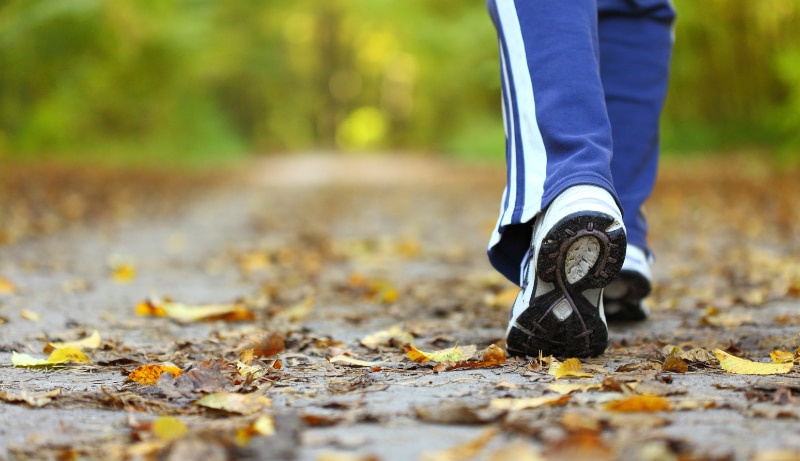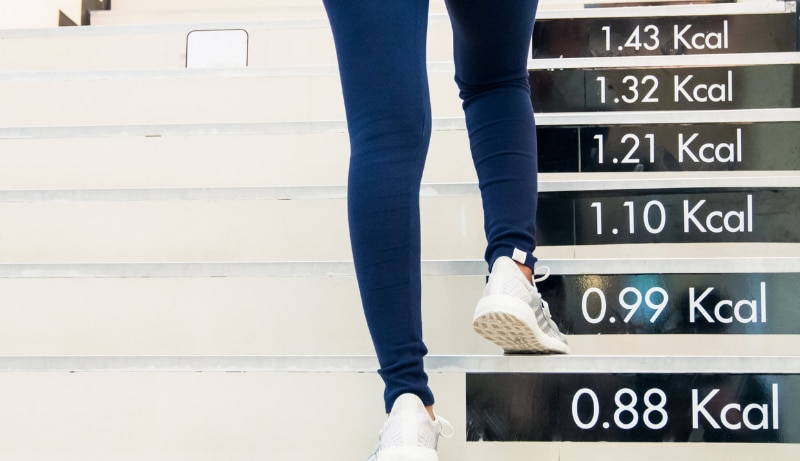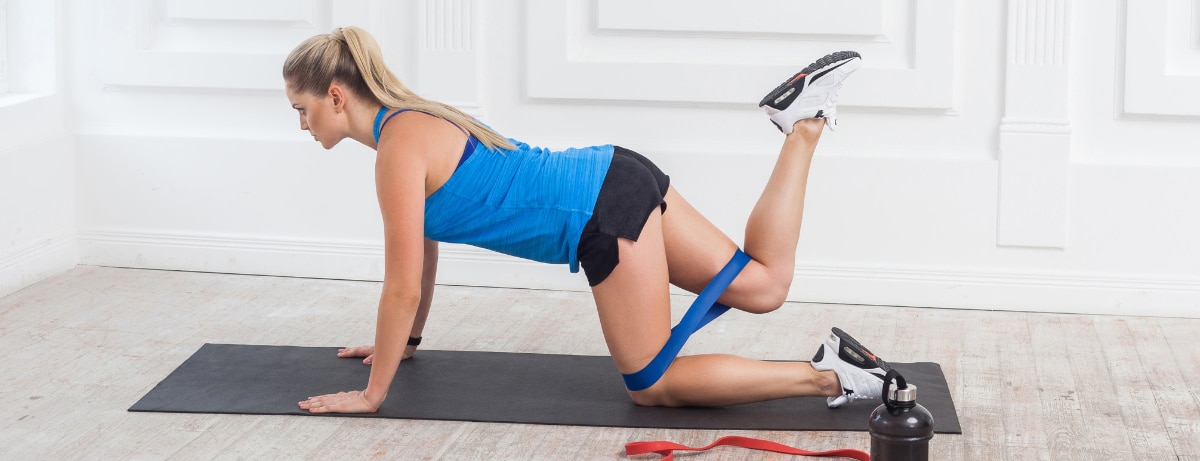15% off €25
3 benefits of walking

When was the last time you went for a walk? Maybe you walked to the shop or took the dog for a walk?
Most of the time, most of us probably don’t walk as much as we should because it’s quicker and easier to jump in the car instead.
But the benefits of walking are really worth remembering next time you automatically grab your car keys when you’ve got to get somewhere you could easily walk to. Getting from A to B on foot can sometimes take a little longer, but there are way more advantages to it, as you’ll soon find out…
What are the benefits of walking daily?
If you’ve ever wondered, ‘Is walking good for you?’ then take a look at the benefits below. Believe it or not, there are a fair few pluses to walking, here’s some of the most common ones:
Walking is a form of exercise and can help you burn off some calories. How far and fast you walk will determine how many calories you lose. A brisk walk is around 3 miles an hour, which is faster than a stroll.
The NHS says you don’t have to walk for miles on end, a brisk 10-minute walk can be good for our health and wellbeing. It gets us moving while also getting some fresh air in our lungs.1
Going for a walk after you’ve had something to eat can reportedly help maintain normal blood sugar levels.
One study in particular found that going for a 15-minute walk three times a day (after breakfast, lunch, and dinner) helped maintain normal blood sugar levels more than taking a 45-minute walk any time during the day.2
Research has shown that regular walks can alter your nervous system so much that you experience a decrease in anger, particularly if you’re surrounded by green space and the sun’s shining down on you. And, if you happen to go for a walk with a friend or as part of a group, then the interaction with other people can also help lift your spirits too.3
Can you lose weight walking 30 minutes a day?
The answer to this question depends on all sorts of factors - how much you weigh, how long you walk for, how often you walk, the pace, and if you burn off more calories than you’re consuming.
Generally speaking, walking burns between 90 and 350 calories per 30 minutes, depending on speed, intensity, incline and your body weight.4


How many calories can I burn from walking?
If you’re planning on walking to lose weight, then it’s important to bear in mind that not everybody’s result is going to be the same. Your weight and the speed at which you walk are the two main contributors to determining the total number of calories burned.
Going on a brisk 15-minute walk, i.e. walking 4mph, which the NHS recommends you should do as part of your recommended 150 minutes of weekly exercise, means you could potentially burn:5,6


| Weights (lb.) | 1 minute | 15 minutes | 30 minutes | 45 minutes | 1 hour |
|---|---|---|---|---|---|
| 100 | 4 calories | 56 calories | 113 calories | 169 calories | 225 calories |
| 110 | 4 | 63 | 125 | 188 | 250 |
| 120 | 5 | 138 | 138 | 206 | 275 |
| 130 | 5 | 148 | 148 | 221 | 295 |
| 140 | 5 | 160 | 160 | 240 | 320 |
| 150 | 6 | 170 | 170 | 255 | 340 |
| 160 | 6 | 183 | 183 | 274 | 375 |
| 170 | 6 | 193 | 193 | 290 | 387 |
| 180 | 7 | 205 | 205 | 308 | 410 |
| 190 | 7 | 216 | 216 | 324 | 432 |
| 200 | 8 | 228 | 228 | 341 | 455 |
How to get more from walking for exercise
Has this article got you all geared up to go for a walk now? Better still, are you planning on making walking exercise a regular thing?
If you’ve got your sights set on the latter, then it wouldn’t hurt to know some ‘insider’ tips for getting the most from your walk and mixing things up a bit so it doesn’t get samey. You can do this by:7
- Counting your steps – grab a pedometer or something similar and see how many steps you can do while you’re out. Aim for 3,000 and then gradually build up to at least 5,000 steps a day.8
- Picking up your pace – as you get used to walking for longer, see if you can walk faster too. The best way to do this is not by talking longer steps, as it could place added strain on your legs, ankles and feet. Instead, take faster steps.
- Moving your arms – ideally, you want to swing them. You could swing them naturally or bend them at a 90 degree angle and pump from your shoulder, in the same way that race walkers do. Whichever option you choose, take care not to overexert your arms and shoulders.
Ways to get the walking bug
If you’ve gotten to this part of the article and are still wondering if walking’s for you, then you may be interested to read about these, they’re a list of tips/tricks, all designed to make it easier for you to embrace walking:9
- Walk part of the way to work
- Walk to the shops
- Use the stairs instead of the lift
- Leave your car behind for short journeys
- Walk the kids to and from school
- Go for regular walks with a friend
- Go for a stroll after dinner
- Plan your walk beforehand
- Listen to music or a podcast
- Vary your routes
- Join a walking group


Does the thought of going for a walk appeal to you now? We do hope so, not only is it something most people of all ages can do, it’s something we can all do for free!
With the Festival of Winter Walks taking place from December 15 to January 6, why not use this walking event to incorporate this enjoyable form of exercise into your life? You never know, you may be a natural born walker and wish you’d done it sooner.
If getting out for a walk is difficult for you, don’t worry, you can still incorporate more walking into your everyday regime. This article shares some ‘Walking exercises you can do at home.’
Health Benefits of Walking
Last updated: 26 March 2021
- https://www.nhs.uk/live-well/exercise/walking-for-health/
- https://www.prevention.com/fitness/a20485587/benefits-from-walking-every-day/
- https://www.womenshealthmag.com/uk/fitness/fat-loss/a27264793/lose-weight-walking-30-mins-a-day/
- https://www.nhs.uk/live-well/exercise/walking-for-health/
- https://www.verywellfit.com/walking-calories-burned-per-minute-3887138
- https://www.active.com/walking/articles/12-ways-to-improve-your-walking-workout
- https://www.active.com/walking/articles/12-ways-to-improve-your-walking-workout
- https://www.nhs.uk/live-well/exercise/walking-for-health/



